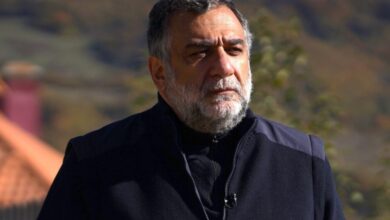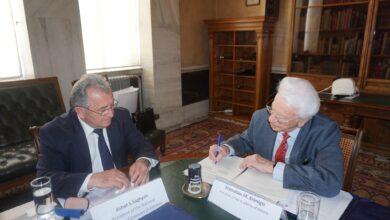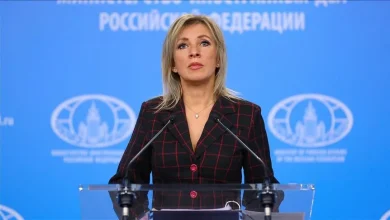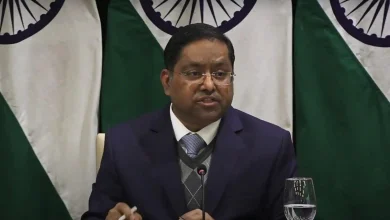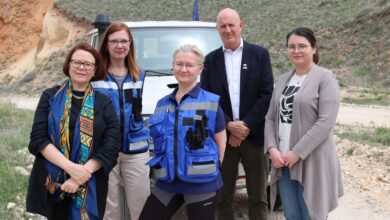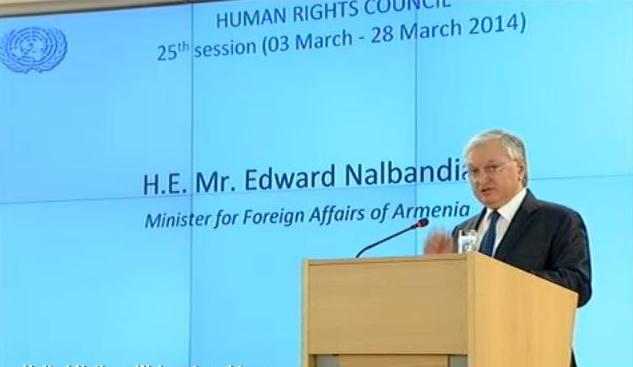
Armenian Foreign Minister Edward Nalbandian made a statement at the High Level Segment of the United Nations Human Rights Council in Geneva:
Mr. President,
Excellencies,
Ladies and Gentlemen,
I would like to join previous speakers in congratulating Mr. Baudelaire Ndong Ella on his election as the President of the Human Rights Council, and to wish him success in this important endeavor.
In today’s world, where human rights are praised more than ever, and at the same time violated not less than in the past, in this Palace of Nations the words of one of the world’s most dedicated personalities to human rights Nelson Mandela is more than relevant: “to deny people their human rights is to challenge their very humanity.”
The Human Rights Council has addressed many questions in attempts to respond to the situations of gross violation of human rights in various parts of the world.
It is vital to concentrate on the concept of prevention. The UN Secretary-General’s Five-Year Action Agenda draws special attention to the issue of prevention. Early prevention can surely stop escalation of conflicts, tragedies and crimes against humanity. Implementation of this Agenda allows us to address the issue of prevention at a global level through regular assessment of possible risks.
One of such risks leading to the most dangerous consequences is the propaganda of hatred on racial, ethnic or religious ground. This propaganda is often accompanied with aggressive bellicose rhetoric. The South Caucasus region in the past witnessed and now is witnessing this kind of risks. Such propaganda preceded anti-Armenian massacres in Azerbaijan – in Sumgait, Baku, Maragha and many other places, when thousands of Armenians were tortured, killed, thus starting the ethnic cleansing of Armenians living on the territory of Azerbaijan. Twenty five years later, in today’s Azerbaijan, similar, and even worse hate-speech, war propaganda emanating from the highest level of Azerbaijani authorities often results in the escalation of the situation and loss of innocent lives.
The European Commission against Racism and Intolerance (ECRI) in its report on Azerbaijan noted with deep concern the “constant and negative official and media discourse concerning the Republic of Armenia” and recommended the Azerbaijani authorities to “adopt an appropriate response to all cases of discrimination and hate speech against Armenians.” Responsive nature of our organization entails proper assessment and adequate reaction to this behavior.
Mr. President,
The UN treaty bodies do an important job to monitor human rights situation worldwide and help countries improve their human rights record. We especially appreciate the work of the UN Committee on the Elimination of Racial Discrimination, which recently elaborated Recommendation No.35 on racist hate speech. In particular, the Committee underlined the role of hate speech in processes leading to mass violations of human rights in conflict situations and genocide. The Committee members issued the above-mentioned Recommendation being fully aware of the role of hate speech in instigating racial hatred and discrimination, and reflected at length on the dangers it posed.
The Universal Periodic Review became a good tool in protection and promotion of human rights. It is a known fact that efficiency of human rights protection international mechanisms depends on the political will and readiness of Member States to implement their commitments by respecting the adopted rules and procedures.
Since its launch in 2008, the UPR was meant to focus exclusively on human rights and avoid politicization of the raised issues. During Armenia’s UPR review, the Armenian side accepted the recommendations made by Member States. Azerbaijan during its UPR turned the entire review into a politicized show, selectively interpreting international community’s perception of human rights, refusing to accept any of recommendations made by the Armenian delegation – just because they were “recommended by Armenia”. Such behavior undermines the whole concept and the foundations of the UPR. This was a violation of rules of procedure. I call upon the Member States to strongly react to such cases in order not to create such destructive precedence.
Last year Armenia assumed chairmanship of the Committee of Ministers of the Council of Europe. The priorities of the Armenian Chairmanship have been defined in response to the challenges that the world faces today with regard to the protection of human rights, strengthening of democracy and respect for the rule of law. Racism and racial discrimination, xenophobia and intolerance grossly violate human dignity and give rise to tensions within and between societies. That is why the fight against them became one of the main priorities of our chairmanship.
Mr. President,
We often speak about universality and indivisibility of human rights. All human rights are equally important and must be equally protected. In this context I would like to mention the right of peoples to self-determination. In accordance with the founding purposes of the UN Charter, Article 1 of the International Covenant on Civil and Political Rights recognizes that all peoples have the right to self-determination, which is of particular importance because its realization is an essential prerequisite for the effective guarantee of human rights. This inalienable right unequivocally belongs inter alia to the people of Nagorno-Karabakh.
Mr. President,
Speaking on the situation in Syria that still continues to remain complex and in the centre of attention of international community, I would like to welcome the unanimous adoption by the Security Council of the Resolution that speaks about the urgent need to increase humanitarian aid access in Syria, calling to immediately cease attacks against civilians and lift the siege of populated areas. We welcome all efforts towards the peaceful solution of the crisis. Armenia has already received over 10.000 refugees from Syria, and our Government tries to do its best to assist them.
Mr. President,
Prevention of genocide and crimes against humanity should be amongst our priorities. Last year, during the 22nd session of the Human Rights Council, Armenia initiated a resolution on Prevention of Genocide, which was adopted by consensus.
One of the aims of that Resolution is genocide prevention through joint efforts of the UN Member States. I would like to take this opportunity and thank all those countries that co-sponsored the Resolution. In two days, on March 7th, the Human Rights Council will convene a high-level panel to mark the 65th Anniversary of the Convention on the Prevention and Punishment of the Crime of Genocide. The panel is organized in accordance with the requirements of the said Resolution. I call upon all Member States to actively participate in this important panel discussion.
Thank you!



